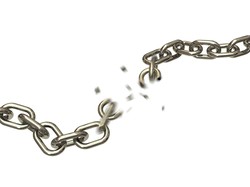The annual Compassion, Peace, and Justice Advocacy Training Weekend will take place April 17–20 in Washington, D.C. More than 1,000 faith advocates, including 200 Presbyterians, come each year to the nation’s capital to focus on issues of national and international importance.
The theme of this year’s Ecumenical Advocacy Days event is “Breaking the Chains: Mass Incarceration and Systems of Exploitation,” and sessions will focus on human rights violations in the areas of incarceration, child labor, land grabbing and education.
“Human exploitation comes in many forms, including a prison-industrial system that puts millions of people behind bars in this country and abroad,” says J. Herbert Nelson, director of the PC(USA) Office of Public Witness. “We see how this system can be used to allow companies to profit off of the exploitation of slave, trafficked and forced labor.”
The U.S. makes up only 5 percent of the world’s population but holds nearly a quarter of the world’s prisoners. The event will consider the many forms imprisonment can take, including detention centers, prisons, factories and drug wars that “dehumanize and humiliate” for economic profit.
According to the U.S. Department of Justice, more than 40 percent of this nation’s 2 million male inmates are African-American. Nelson believes the prison system is set up to keep inmates from successfully returning to society as productive citizens.
“African-American inmates often can’t afford good attorneys, become embattled in the court process and are sentenced over and over again to long-term incarceration,” he says. “Any minor violation puts you back in prison. It is the disenfranchisement of African-Americans.”
Nelson says thousands are sitting in jails and prisons as a result of this country’s war on drugs. Many are facing lengthy sentences at a time when government leaders are re-evaluating current drug laws.
“We are seeing incarceration with no rehabilitation,” he says. “An individual in solitary confinement will spend only one hour in a 24-hour period outside of his or her cell. But it is still a secluded area with no interaction with other human beings. Such isolation can drive a person to lose his or her mind.”
Nelson and other event organizers believe education is key in helping to rehabilitate the prison population. They say the lack of education leads to fewer job opportunities, forcing many to return to crime.
The four-day advocacy event will address these issues through a series of interactive plenary sessions and workshops. Attendees will also prepare for a focused Lobby Day conversation with members of Congress. Organizers want to send a strong message that people of faith denounce any social policy that violates human rights.
Ecumenical Advocacy Days grew out of a coalition of sponsor organizations in 2003, giving ecumenical Christians and partners an opportunity to gather, worship and discuss social justice issues. Past topics have included food justice, poverty and hunger, immigration and climate change.
“When we look at the overall struggles the church is facing now, there is a belief that we’ve lost relevancy, that the church is not what it used to be,” Nelson says. “This gives us an opportunity to come harmoniously and develop the church of the future.”
When Nelson became director of the Office of Public Witness, he looked at Ecumenical Advocacy Days as an opportunity for the ministries of Compassion, Peace, and Justice to educate Presbyterians about their work. As a result, his office launched the Training Day event in 2011. This session is held annually prior to the start of Ecumenical Advocacy Days.
“We wanted to provide an outlet for Presbyterians to gather before the larger conference to see what the church was doing and be a part of it,” Nelson says. “This allowed us to be front and center on the issues going into the rest of the conference.”
Registration for Advocacy Training Weekend 2015 is now open.

